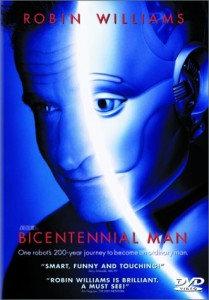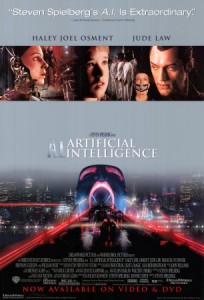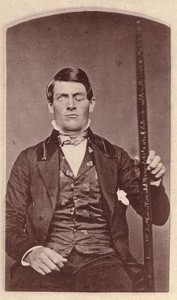The Human Machine?
Chapter 20 of our textbook outlines some very interesting concepts about artificial intelligence, such as the Turing test and the argument of strong versus weak artificial intelligence. According to the text, artificial intelligence (AI) is defined as a “special branch of computer science that investigates the extent to which the mental powers of human beings can be captured by means of machines.” Scholars in this field have been debating the potential “humanness” a machine currently possesses or will possess for the last fifty or sixty years. Proponents of weak AI claim that a computer will only ever be able to simulate a human mind, whereas proponents of strong AI claim that computers actually duplicate the mind. Turing sought to answer the question, “Can machines think?” with an experiment where a computer and an actual human response were alternatively given to an interrogator. If the interrogator was unable to consistently determine the human response, the computer, according to the test, could be said to think.
So what do you think? Will true artificial intelligence ever be realized? Is a machine’s ability to mimic human behavior or characteristics enough to classify it as a thinking being, or are there other factors that need to be considered as well? I know this is kind of random, but what about the issue of cloning (if that’s ever possible), would clones fall under the heading of natural or artificial or neither?




Kameron Allen on A modern translation of Epicureanism in the Church
8:37 pm, 09.05.10
I believe that relativism, or at least absolute relativism, poses a major threat to most religious institutions, especially Christianity. In my own life, I found that conforming to the idea that “truth is relative” only led me down an extremely difficult road that ultimately ended when I realized I was indifferent to all forms of spirituality. This indifference, I think, is a trap that many people fall into and few escape. I noticed in another post that you mentioned the concept of epistemological humility; it is this concept, not relativism, that is key for those seeking truth.
Thanks for the post!
Kameron Allen on Views on the Cave
6:24 pm, 09.05.10
I think one of the more amazing things about the allegory of the cave is that it can apply to any of the three areas you mentioned, and more. In my opinion, the allegory doesn’t have to be limited specifically to any one area of contemplation because it is useful for contemplating many things. Personally, I tend to think about the allegory when reflecting on my spirituality. Others, like your old professor, use it to explore their ideas of an afterlife, and so on and so forth. The allegory is applicable to both of these examples, and, as I stated before, to many other facets of life as well.
Thanks for the post!